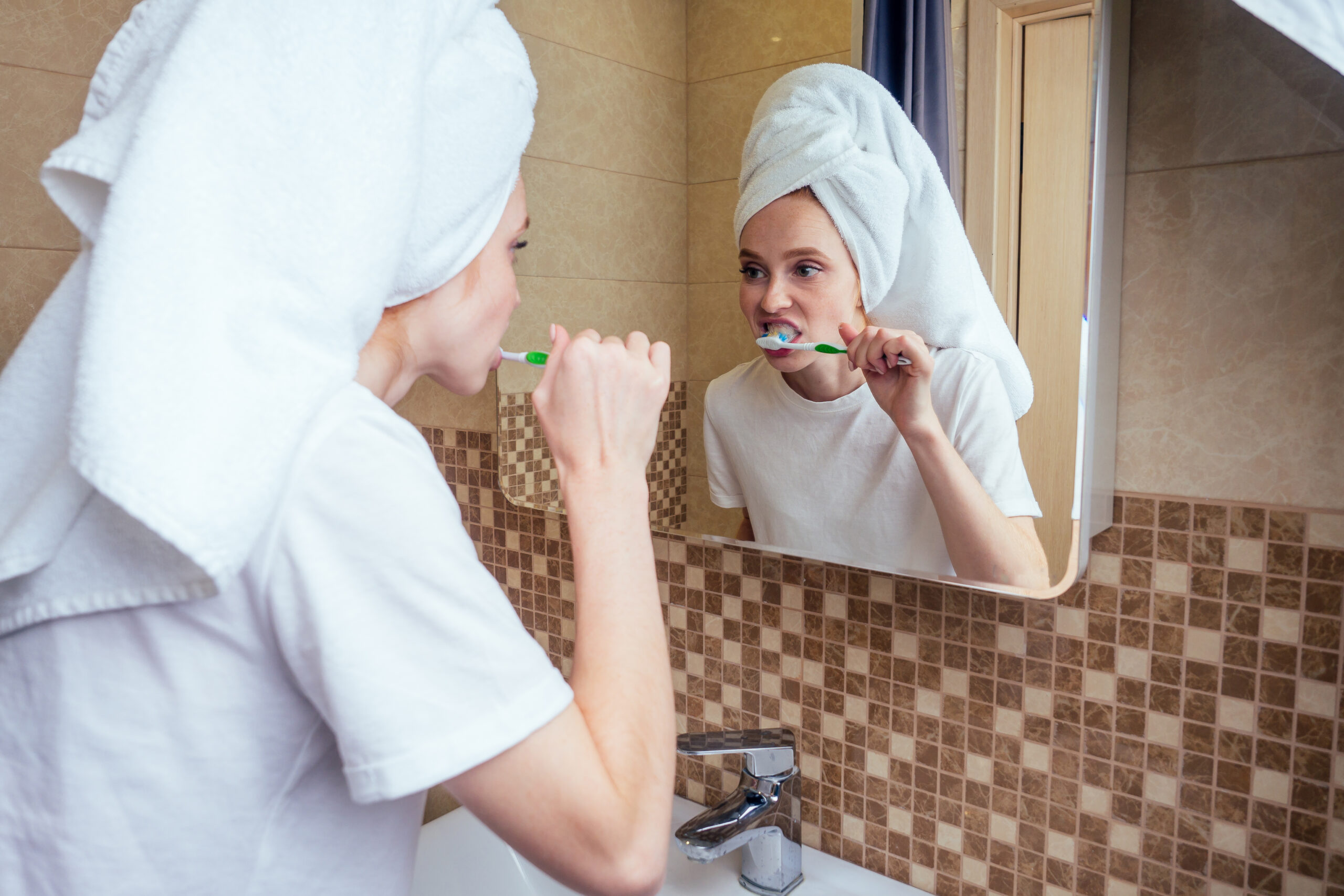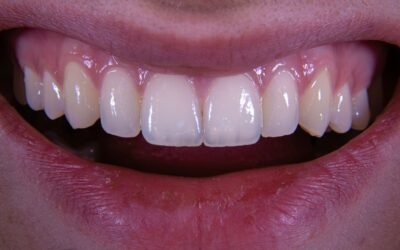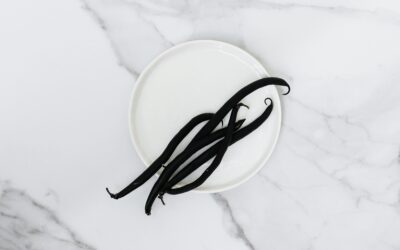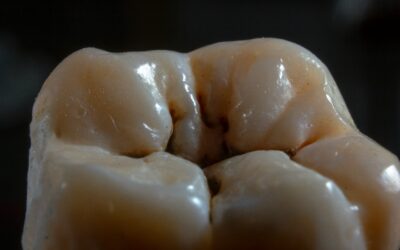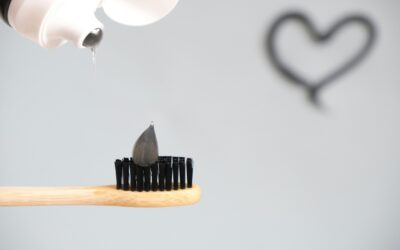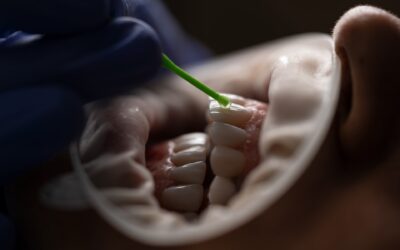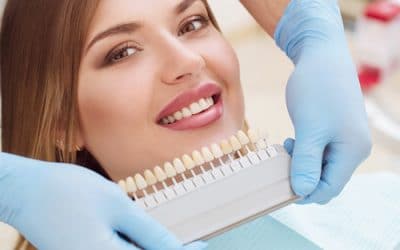Not sure how long you should brush your teeth? You’re not alone. Many people rush through brushing, often for less than a minute, completely unaware that this isn’t enough to keep their gums and enamel in top shape. In this article, we’ll give you all the information you need to ensure your daily brushing routine is effective at stopping the buildup of plaque and at keeping your oral hygiene healthy. So, let’s explore what the experts recommend, why timing matters and how to protect your smile.
How Long Do You Brush Teeth – And Why Two Minutes Matters
Most dental professionals recommend brushing your teeth twice a day for at least two minutes each time, and for good reason. According to the NHS, two minutes ensures you clean all surfaces thoroughly and help protect against plaque, decay and gum disease [1].
Studies show that brushing for two minutes removes significantly more plaque than brushing for just 45 to 60 seconds. Some experts even suggest brushing for up to three minutes, with one and a half minutes spent cleaning your upper teeth and then the same for your lower [2].
The American Dental Association (ADA) reinforces that two minutes twice daily with fluoride toothpaste is the best routine to prevent tooth decay and protect your enamel [3]. For more information on why fluoride toothpaste is actually beneficial to your oral health, rather than something to be feared, have a read of our recent article which looks at whether fluoride in toothpaste is actually bad for you.
How to Make Two Minutes Count When Brushing
Two minutes might not seem like a long time, but when it comes to brushing your teeth, it’s more than enough (if you use it wisely). Here’s how to make every second count and ensure you’re getting the most out of your daily dental routine:
- Divide your brushing: Spend about 30 seconds per quadrant (upper left, upper right, lower left and lower right)
- Use a soft‑bristled toothbrush and hold it at a 45° angle to the gumline to clean both teeth and gums effectively [4]
- Use small circular or gentle back-and-forth motions, covering all outer, inner and chewing surfaces. Don’t forget your tongue!
- Electric toothbrushes often include built‑in timers that buzz every 30 seconds and at the two-minute mark to help you pace your brushing
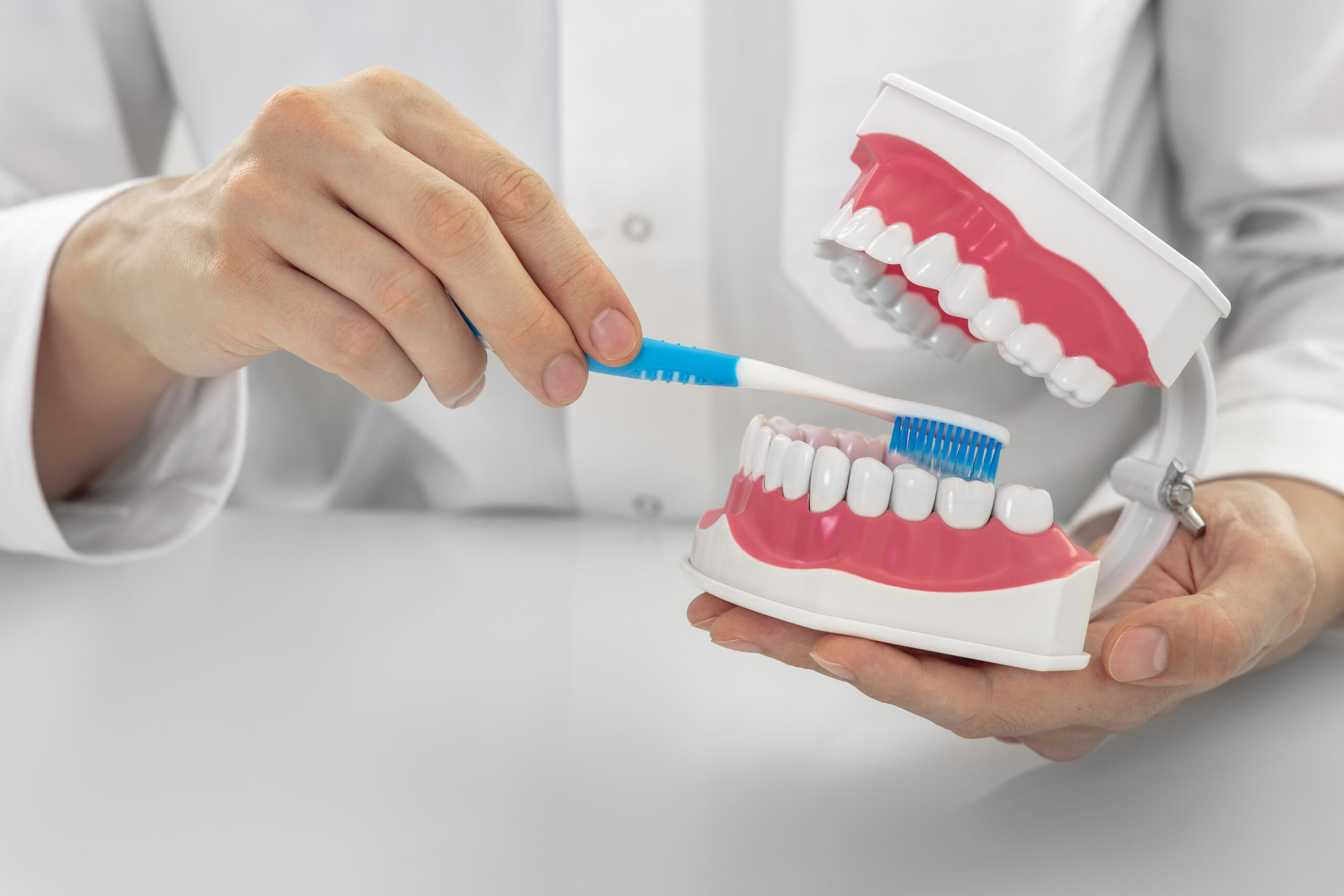
What Happens If You Don’t Brush Your Teeth Properly?
Skipping brushing, cutting it short or rushing through it might seem harmless in the moment, but over time it can seriously impact your oral health. These habits allow plaque to build up, weaken enamel and create the perfect conditions for more serious problems to develop such as:
- Plaque buildup, which turns into tartar and leads to gum inflammation (gingivitis) or worse [5]
- Tooth decay and enamel erosion from acids produced by plaque bacteria acting on sugars and acidic food residues
- Gum disease, which if left unchecked can progress from gingivitis to periodontitis, potentially affecting dental support and even overall health [6]
- A cycle of persistent gum irritation, sensitivity and even tooth loss if neglected.
Should You Brush Before or After Breakfast?
Many people wonder when the best time to brush their teeth actually is. While it’s recommended to brush twice a day, some only manage it once – often in the morning while getting ready for work, school or whatever else the day brings. But that still leaves a common question: should you brush before breakfast or after? The common consensus leads toward brushing before breakfast, despite what many believe [7].
This is because bacteria builds up rapidly in your mouth overnight (especially if you didn’t brush for two minutes before going to sleep). Brushing first thing removes plaque and coats your teeth with protective fluoride, which in turn helps to guard against the acids and sugars in the food and drink you consume for breakfast.
If you do prefer brushing after breakfast, be sure to wait at least 30 to 60 minutes, particularly if you’ve had acidic foods or drinks like orange juice or coffee. In the meantime, rinse with water or chew sugar-free gum to neutralise acid and let enamel re-harden. To learn more about how your nutrition affects oral health, have a read of our recent blog post.
Conclusion
When it comes to how long we should brush our teeth, the answer is clear and simple: two minutes and twice daily, using fluoride toothpaste and a soft-bristle brush, employing gentle and thorough technique. Brushing before breakfast is the safest and most protective approach, but if you do it after, wait at least half an hour to preserve enamel health. Skipping brushing or rushing through it can lead to serious oral health problems over time.
Your smile and your gums deserve the full two minutes. If you have questions about brushing technique, enamel sensitivity or finding the right toothbrush for you, speak to your local dentist or contact our team at Cheslyn Hay Dental Practice. We’re always happy to help guide you on your journey to better oral health and a happy smile.
References
[1] https://www.colgate.com/en-in/oral-health/brushing-and-flossing/how-long-should-you-brush-your-teeth-for-0113
[2] https://www.health.harvard.edu/blog/whats-the-right-way-to-brush-your-teeth-202211232854
[3] https://www.self.com/story/how-long-to-brush-teeth
[4] https://www.glamour.com/story/how-should-you-brush-your-teeth
[5] https://www.mayoclinic.org/healthy-lifestyle/adult-health/expert-answers/brushing-your-teeth/faq-20058193
[6] https://www.verywellhealth.com/oral-hygiene-5209794
[7] https://shawnessydental.com/should-you-brush-before-or-after-breakfast

